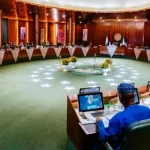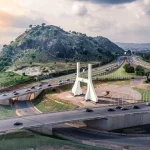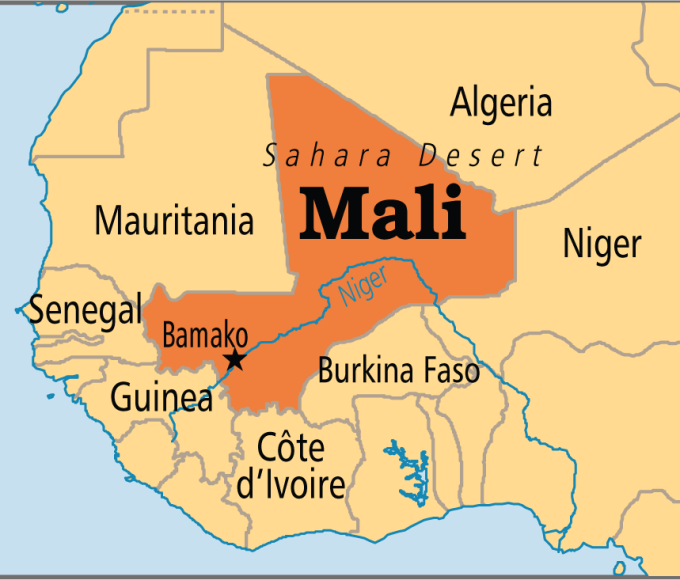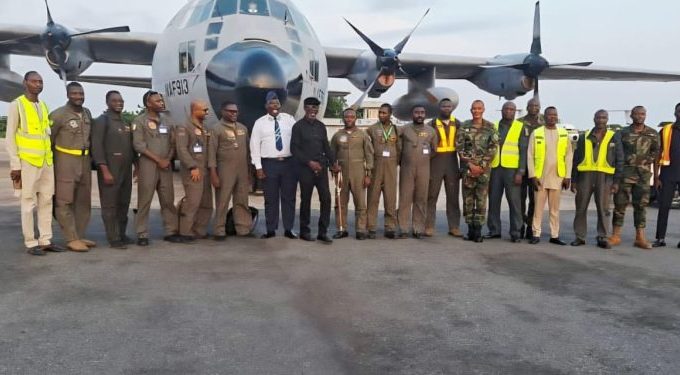
Trillions Wasted and Billions Unaccounted as Third Mainland Bridge and Lagos–Benin Expressway Keep Feeding Government Looting

Nigeria’s two most critical transport projects, the Third Mainland Bridge and the Lagos–Benin Expressway, have become national disgrace projects, riddled with waste and shameless political profiteering. For decades, billions of naira have been poured into these works, yet commuters still crawl through traffic on broken roads and over a bridge that always seems on the verge of collapse.
Instead of completing vital infrastructure, successive governments have turned these projects into perpetual cash machines. Every contract award is followed by another “variation,” another round of excuses replaces every promise of completion, and every so-called rehabilitation only creates a new opportunity to siphon funds. These projects have been deliberately kept in a state of limbo because unfinished projects mean endless payouts.
The Third Mainland Bridge and the Lagos–Benin Expressway, including the Lagos–Ibadan and Sagamu–Benin sections, are crucial to Nigeria’s economy, carrying immense volumes of goods and commuters daily. But their decades-long construction and rehabilitation cycles, likened to an Abiku (a child who repeatedly dies and is reborn in Yoruba folklore), have drained the treasury while delivering little lasting relief.
Built in 1990 for roughly ₦1 billion, the Third Mainland Bridge has since consumed billions more for constant repair works. An investigation revealed that ₦7 billion was allocated for rehabilitation between 2019 and 2022.
However, out of the ₦6.4 billion reportedly released, only ₦1 billion could be traced, leaving a disturbing ₦5.4 billion gap. Despite this, fresh maintenance contracts worth ₦6.27 billion were approved in April 2023. Long-term structural rehabilitation is now estimated at ₦3.8 trillion, an astronomical sum for a bridge under haphazard maintenance for decades.
The Lagos–Benin Expressway tells a similar story. Prolonged delays, funding shortfalls, and procedural delays have cost the Federal Government an additional ₦679 billion in inflated project expenses. The 127.6 km Lagos–Ibadan Expressway, awarded for ₦167 billion in 2013, may ultimately cost ₦1.093 trillion.
The Sagamu–Benin axis saw a ₦20 billion jump, rising from ₦71 billion to ₦91 billion. In May 2025, the Federal Executive Council approved another ₦187 billion for the remaining 96 km of the Benin–Shagamu–Ore Expressway, years after previous “completion” promises.
Both Julius Berger and Reynolds Construction Company (RCC) have repeatedly threatened to suspend work over the government’s failure to pay agreed-upon fees. Julius Berger flatly stated that “adequate funding is not available,” forcing them to halt operations and pushing back delivery timelines. In 2017, work on the Lagos–Ibadan Expressway stalled completely after a budget clash.
The Executive allocated ₦30 billion, but the National Assembly slashed it to ₦11 billion and allegedly diverted the balance to phantom constituency projects.
This is a prime example of political gamesmanship sabotaging a project of national importance.
Despite billions of naira spent, the Third Mainland Bridge became almost a death trap from poor supervision and piecemeal repairs. Motorists on the Lagos–Ibadan Expressway report needless hardship due to weak government oversight of contractors, compounding delays and safety hazards.
Infrastructure experts note that road projects in politically unstable environments cost 15 per cent more, and Nigeria was once ranked fourth most expensive worldwide for road construction (1996–1998), a pattern still visible today. Why? Because these projects aren’t about infrastructure anymore, they’re about enrichment.
Even with special funding vehicles such as InfraCorp and the Presidential Infrastructure Development Fund (PIDF), the same structural problems persist: official neglect, poor maintenance culture, and the absence of a clear legal framework for private-sector participation.
The Third Mainland Bridge and Lagos–Benin Expressway are no longer just roads. They are crime scenes, endless projects carefully engineered to bleed public coffers dry. They have been transformed into state-sponsored looting schemes, where every delay, every “rehabilitation,” and every budget revision is just another payday for those in power.
This government, like those before it, has mastered the art of turning national development into a personal payday. Until real accountability arrives, Nigerians should expect more delays, more variations, and more billions vanishing. At the same time, they sit for hours in traffic on roads that were paid for many times over.
About The Author
Related Articles
Gold Sector Revival Expected to Drive Mali Growth Next Year
The International Monetary Fund has projected that Mali’s economy will return to...
ByWest Africa WeeklyDecember 22, 2025Burkina Faso, Mali and Niger Formalise New Regional Security Alliance
Burkina Faso, Mali and Niger have formally launched a joint regional military...
ByWest Africa WeeklyDecember 22, 2025Ghana Receives Nigerian Military Aircraft After Burkina Faso Release
A Nigerian Air Force aircraft that had been held by Burkina Faso...
ByWest Africa WeeklyDecember 22, 2025Burned Files, Altered Laws: The Growing Pattern of Disappearing Records Under Tinubu
A fire outbreak at the headquarters of the Federal Inland Revenue Service...
ByWest Africa WeeklyDecember 21, 2025












Leave a comment